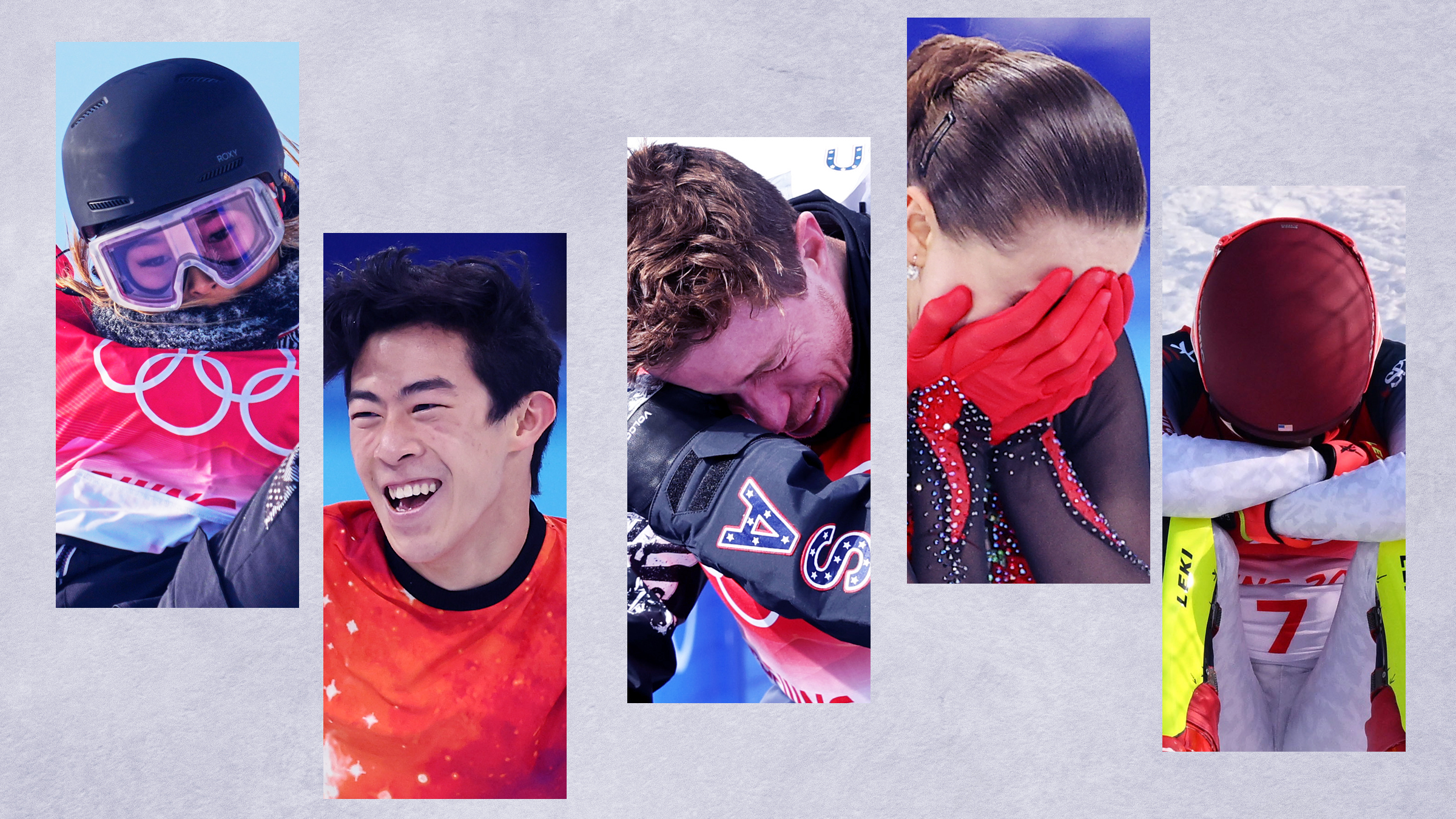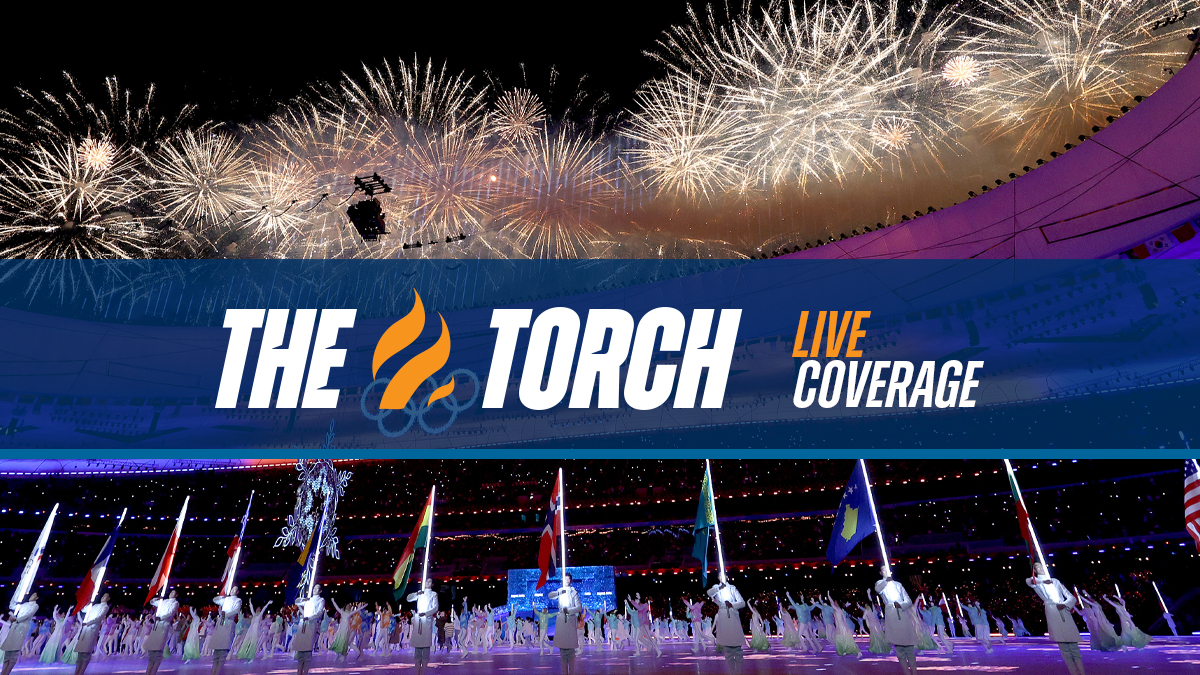A decision is expected soon on whether Russian figure skater Kamila Valieva, who is skating for ROC at the 2022 Winter Olympics, will be allowed to compete after making history earlier in the Games.
At stake is Russia's gold medal in the team event and the 15-year-old star’s right to compete in the women’s individual event starting Tuesday, where she is a favorite for the gold medal.
So what exactly happened, why is it under investigation now and what could still happen for the young skater?
What happened with Kamila Valieva that sparked the investigation?
Feeling out of the loop? We'll catch you up on the Chicago news you need to know. Sign up for the weekly Chicago Catch-Up newsletter here.
Valieva's status at the Olympics became unclear after she tested positive for the banned heart medication trimetazidine in Russia in December. She won a gold medal in the team event five days ago, before the test result was known, and is scheduled to compete as an individual Tuesday.
Valieva tested positive in a sample given on Dec. 25, when she won the Russian national championships.
That sample was the responsibility of the Russian Anti-Doping Agency, known as RUSADA. It was sent to a WADA-approved laboratory in Stockholm, Sweden, for analysis.
Beijing 2022 Winter Olympics
Watch all the action from the Beijing Olympics live on NBC
On Monday — hours after Valieva’s skating helped the Russians win the Olympic team event — the Stockholm lab notified RUSADA the test was positive.
She had been provisionally suspended by the Russian Anti-Doping Agency on Feb. 8 but challenged the decision, and the RUSADA lifted it the following day.
The International Olympic Committee, International Skating Union and World Anti-Doping Agency (WADA) have all launched an appeal with CAS against RUSADA's decision to lift the provisional ban, which the Court of Arbitration of Sport will hear Sunday.
“It was sending a signal that we want this solved as quickly as it can be,” IOC spokesman Mark Adams.
What is trimetazidine?
The medication trimetazidine is a metabolic agent that helps prevent angina attacks and treats the symptoms of vertigo, according to the European Union’s medicines agency. It can increase blood flow efficiency and improve endurance — both crucial to any high-end athletic performance.
It is on the prohibited list managed by the World Anti-Doping Agency in the category of “hormone and metabolic modulators.”
What could happen next?
Valieva will find out Monday if she can compete at the Olympics in the women's competition, which starts a day later.
The Court of Arbitration for Sport said Saturday the expedited hearing on Valieva's doping case will be held Sunday night in Beijing, with a ruling by Monday afternoon.
The legal process is unusually complex because of Valieva's status as a minor, which gives her protections in the anti-doping rule book.
Because Valieva is only 15, her ultimate penalty could be as little as a reprimand. Her entourage of coaches and doctors face more scrutiny because the World Anti-Doping Code mandates they are automatically put under investigation.
If sent home, Valieva would be one of the youngest athletes ever removed from the Olympics for doping.
How does the hearing work?
At the court's closed-door hearing, which will be held by video link, lawyers for the Russian Olympic team and Valieva can ask the three judges to listen to a personal statement from her.
“If she attends I assume it will be by video conference,” CAS director general Matthieu Reeb said at the court's hotel base. "It will be a long night. It could be four or five hours.”
The three CAS judges, from Italy, the United States and Slovenia, will consider only the request to re-impose the interim ban on Valieva. It will be chaired by Milan-based lawyer Fabio Iudica.
The American judge, Jeffrey Benz, is a former national-level figure skater and one of the most in-demand arbitrators for CAS cases. Vesna Bergant Rakočeviċ is a high court judge in the Slovenian capital of Ljubljana.
Who is Kamila Valieva?
Valieva, 15, helped lead the Russian Olympic Committee to gold last week with a stunning performance during the team event, becoming the first woman to land a quadruple jump.
Her performance cemented her status as a figure skater to watch at the 2022 Winter Games.
Valieva has set nine world records during her career and is the second woman ever to land the quadruple toe loop.
She competed in gymnastics, ballet and figure skating until she was 5 years old, when she decided to stick with figure skating.
She told the Olympic Channel she learns a lot from watching Nathan Chen and Japanese figure skater Yuzuru Hanyu.
The 15-year-old skater, the favorite to win the gold medal, broke down in tears after an emotional practice session Saturday.
On Saturday, Valieva fell during practice on a triple axel — a jump she typically executes without a problem — while doing a run-through of her short program. She later landed two combos, a triple flip-triple toe loop and a triple lutz-triple toe loop before skating to the boards and giving her coach, Eteri Tutberidz e, an emotional hug.
What about ROC and their team gold medal in the 2022 Winter Olympics?
Whether the Russian team keeps the gold medal in the team event is a separate issue that will be decided later.
The full investigation of the doping case is for RUSADA to handle and could take months. That could also be appealed to CAS.
What happened with Russia before that they were forced to compete under ROC?
Russian athletes in the 2022 Winter Games are competing under the iconic five-ring Olympic banner, and there is a specific reason why.
Those athletes are participating under the name of the “Russian Olympic Committee,” or ROC for short, because Russia received a two-year ban from the World Anti-Doping Agency in 2019 for its state-sponsored doping program. Between Dec. 17, 2020, and Dec. 17, 2022, no athlete can represent Russia at the Olympics, Paralympics or World Championships.
The ban was originally set to last four years, but the Court of Arbitration for Sport reduced it to two years.
The doping scheme was first revealed in 2016 by a whistleblower and included at least 15 medal winners from the 2014 Olympics, held in Sochi, Russia.
In 2017, the International Olympic Committee suspended Russia. After an appeal by several Russian athletes who were not linked to the scheme, the Court of Arbitrations for Sport allowed Russian athletes to participate in global competitions as neutral competitors. At the 2018 Winter Olympics in PyeongChang, Russian athletes who passed drug tests competed under the "Olympic Athletes from Russia," or OAR, delegation.
Russian officials have long denied wrongdoing in connection with the case.
As part of the sanctions, ROC team uniforms cannot contain the Russian flag, but are allowed to be based on Russia’s national colors. If their uniforms say “Russia,” they must also include “neutral athlete” or something equivalent in the same size.
The Russian flag also cannot be flown in an official capacity at the Games and the national anthem can't be played. Any Russian athlete that wins a gold medal during the Olympics will see the Olympic flag raised and hear Russian composer Pyotr Tchaikovsky’s Piano Concerto No. 1 will play at medal ceremonies.
Despite the sanctions and scrutiny, two OAR athletes failed doping tests at the 2018 PyeongChang Olympics and were later punished, including men’s curler Alexander Krushelnitskiy, who failed his test after winning a bronze medal in mixed doubles. He was suspended for four years, and he was stripped of his bronze medal.
The 2022 Games in Beijing mark the final Olympics that the Russian athletes have to compete under the “ROC” banner.
Have there previous cases of doping using this drug?
The most famous case of trimetazidine in sports doping involved Chinese swimmer Sun Yang.
The three-time Olympic champion served a three-month ban in 2014 in a ruling that was initially not published by China’s anti-doping agency. WADA did not use its right to challenge that Chinese judgment with an appeal to the Court of Arbitration for Sport.
Because it was Sun’s first doping offense, he was punished more severely for his second, and more high-profile, offense of refusing to cooperate with a sample collections team at his home in China.
Russian bobsledder Nadezhda Sergeeva tested positive for trimetazidine at the 2018 Pyeongchang Olympics. She was disqualified from the two-woman bob event and served an eight-month ban.




